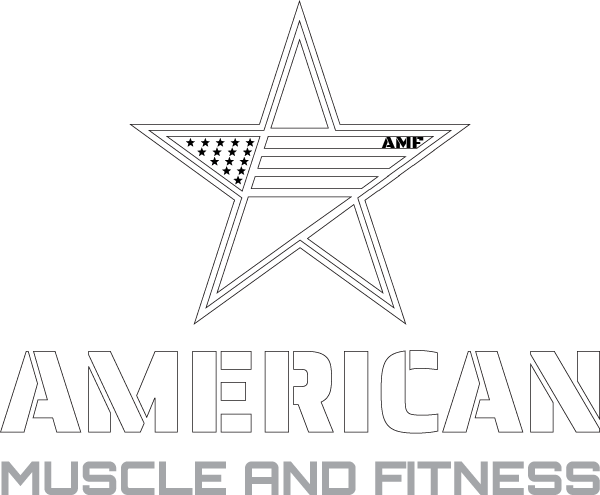The Ultimate 'Fad Diet' Cliff Notes
One of my weight-loss nutrition clients told me she “did great” over the weekend by eating only pork rinds dipped in cream cheese and only drank Vitamin Water…
That’s a true story. If you’re wondering why that’s interesting; she believed religiously that carbs were indiscriminately bad and only ate saturated fats and processed sugar all weekend convinced she had done herself a favor.
I’m sure you have seen the spectrum of commercials for every diet and weight loss plan on the market. I bet your mom/hairstylist/taxi driver has shared some hard-line rules to what REALLY works. Hand-me-down and grapevine ‘health tips’ (myths) are prolific in every culture. Advertising telling us incredible things without ever actually telling the whole truth, or more accurately, not outright false advertising.
So, if any one actually works then why the need for so many? First, people are stubborn and picky when it comes to discipline and how to go about changing habits, which doesn’t make them wrong, just more susceptible to failure. The biggest reason, though, is that most of the diets don’t work in in real life or are unsustainable long-term which results in failure (no matter the desired result) and a desire for another ‘simple solution’. Let’s look at a few of the leading commercial and fad diets to see what is really happening with each one.
The “Bold or Outrageous Claims” Diets:
The Alkaline Diet
The Basics: Removing foods from your diet that are acidic and replacing them with alkaline foods to keep your body in an alkaline state. Metabolism burns food and the waste can be acid, alkaline, or neutral. It is predicated on the idea that acidity is correlated with vulnerability to disease and illness.
What it Claims: Can help fight cancer, fight disease and illness, and reduces inflammation.
Does it Work? It’s not bad for general wellness since it’s mostly clean and whole foods, but food changes the pH of your urine, not your blood. The cancer claim is completely unfounded, besides the fact that scientist can grow cancer cells in alkaline environments. It is, however, effective for electrolyte replenishment during rigorous activity and has shown to increase metabolism.
The Whole30
The Basics: Eliminate all sugar, sweeteners, grains, legumes, dairy, and alcohol from your diet for 30 days.
What it Claims: Users will find and eliminate food that cause them digestive issues, allergies, chronic pain, hormonal imbalances, etc. Also, the premise is that it will eliminate your cravings for sweets and processed foods, rewire your tastes and how you manage self-comfort and self-reward.
Does it Work? Restriction begets craving. It’s only for 30 days which renders it unsustainable in real life. You will not rewire your entire life’s worth of genetics, behaviors, tastes, or most importantly your psychological view your self-worth and relationship with food in that amount of time. Not to mention it has you avoiding foods known to promote long-term health, ones that are very impractical to avoid long-term in western culture.
The Lemonade Diet/Master Cleanse (Or any cleanse/detox)
The Basics: Literally only lemonade, salt water, and an herbal laxative tea for 10 days.
What it Claims: Lose 10+ pounds with feelings of well-being and “detoxing” your body…
Does it Work? Where do I start?! 1) Humans don’t need a detox because we have the neat thing called a liver! Really, you aren’t going to do anything your liver isn’t already doing. 2) You’re losing 10 pounds of weight, not 10 pounds of fat. You’re losing water weight, salts, muscle, bone, glycogen (carb storage), and maybe some fat. 3) You will gain the weight back shortly after, maybe even more as your body will be sending craving signals like you haven’t eaten for 10 days, because you haven’t.
The Takeaway: Be skeptical. Google is always just a click away and most of these can be debunked by a few (or one) scholarly articles or science based facts in moments. Always look for double-blind, peer-reviewed, studies from organizations and universities with no ties/interest in the product or service.
Prepackaged Meal Delivery Focused on Calorie/Macro Management
SlimFast
The Basics: Replaces some of your daily meals with SlimFast shakes and snacks and regulates daily caloric intake. Encourages portioning and exercise.
What it Claims: You will lose weight through the SlimFast brand of snacks and shakes by increasing metabolism and regulating calories.
Does it work? For some, yes. For most, no. Sustainability becomes unrealistic when people consider if they want to live of SlimFast foods the rest of their life since the diet doesn’t teach anything about how to prepare and gauge the content of their own food. Most people go back to old habits and regain the weight.
Nutrisystem
The Basics: Place zero accountability on the members by selling them their entire diet, which is calorie restricted. The meals focus on clean carbs and reduced sodium.
What it Claims: To simplify weight loss by prepackaging healthy and low-calorie meals for you.
Does it Work? Unless members learn nutrition competence with calorie, macro, and portion management, no. If members continue to buy the food and follow the instructions, they should lose weight and improve health. The problem, again, is sustainability since it doesn’t teach the tools to maintain in real life without Nutrisystem.
Jenny Craig
The Basics: Like Nutrisystem, Jenny Craig sells prepackaged meals focused to members, focusing on calorie restriction.
What it Claims: To simplify weight loss by prepackaging healthy and low-calorie meals for you. Also offering one-on-one counseling to help members manage their diet and exercise.
Does it Work? This is getting redundant. Members may find all the weight returning once they cut the highly priced food delivery and transition to regular lifestyle habits. They do a little better than others due to the counseling, as well as coaching on transitioning out of Jenny Craig.
Takeaway: Prepackaged meals might make it easy but you will never have a realistic concept of nutritional competence, caloric portioning, or intake if you never have to make, weigh, portion, or measure your own food.
Self-Management of Nutrition and Mindset/Psychological Change
Weight Watchers
The Basics: Assigning a point system to foods based on quality of content and quantity of calories/macros. They offer extensive counseling, resources, exercise guidance, and prepackaged meals.
What it Claims: A science based approach to weight loss focusing on portioning, quality food selection, and a slower, realistic time-frame for weight loss.
Does it Work? The success rate is much higher than most mainstream diets. Members are much more successful long term due to the tools and education they received on proper portion and calorie management along with exercise. Having to actually count calories of your own food is a great way to open your eyes to how food effects your body, and how quick calories add up.
Noom
The Basics: Designed to foster healthier habits and shed weight long-term with personalized meal plans administered by registered dietitians. Encourages meal and calorie/macro logging, tracking exercise, nutrition education & competence, and peer/coach support.
What it Claims: Long term weight loss and sustainable goals. Alter and manage behaviors. Education and competence of health and nutrition.
Does it Work? They report some of the better statistics on the commercial side of the industry, so yes, with those who take the initiative to learn, retain, and practice the tools and resources provided. Sustainability is higher due to competence and realistic understanding of nutrition.
Takeaway: Programs that encourage clients to actually think and manage their own nutrition seem to fare better. They allow their members a great deal of gray area to work so it’s not for those who need/prefer dedicated one-on-one coaching, or doubt their discipline or self-control.
The Dreaded “Carbs are Bad” Family of Diets…
The Paleo Diet
The Basics: We shouldn’t eat starches and tubers (potatoes) because of a belief that our paleolithic ancestors did not.
What it Claims: Accelerated fat loss by reduced carbohydrate intake. Also; high blood pressure, acne, heart disease…
Does it Work? Our paleolithic ancestors ate plenty of carbs, at least depending on location and climate. In fact, it’s strongly debated that carbs were attributed to hunting tool development more so than meat. Oh, and studies show people lose more fat on a low-fat diet than a low-carb diet.
The Ketogenic Diet (This basically covers Atkins, South Beach, Mediterranean, etc. as well)
The Basics: Eliminate most or nearly all starchy carbs and very low fibrous carbs. Consume high fats and moderate protein with the intent of achieving Ketosis.
What it Claims: The diet results in the body going into a state of Ketosis - Cells switch from blood sugar (glucose) for energy to breaking down stored fat for energy. In short, fat loss along with claims of high brain function, energy, well-being, etc.
Does it Work? Yes for short term weight loss, but it is not healthy or sustainable long-term for humans. It is playing on the side of an extreme where balance is needed. As a bodybuilder and someone who subscribes to muscle development for metabolism and longevity, it is counterproductive to muscle growth and development. I talk a lot about muscle benefits here!
The Takeaway: Carbs are not bad, you need them, all types, they are good for your health, heart, and muscle.. Practice everything in moderation, don’t go to extremes for a diet. You can lose weight on a low-carb diet, just practice a sustainable balance and don’t avoid them altogether.
In Conclusion
All diets have flaws and user failures, and most diets have some legitimate benefits and success. So, don’t look specifically for a “diet”, find healthy habits and a lifestyle that work for you, practice moderation, be skeptical of fads and TV personalities, be practical, think long-term, and sustainable success in whatever you’re trying to achieve will follow.
Most importantly, one thing almost every diet has in common for weight loss is caloric/macro-nutrient restriction and tracking! This is the ultimate endgame of any weight-management plan or diet. Quality of food matters greatly but if you want to lose weight you must eat at a calorific deficit. Likewise, if you want to gain weight you must eat at a caloric surplus.
Balance is everything, don’t become a slave or a zombie to a diet. Follow it with discipline, see results, but find your breaking point and don’t go past it, enjoy yourself. This is my life as a nutrition coach but even I might be enjoying my weekly glass of Prosecco as I’m typing this on a Saturday night, and it wouldn’t hinder my goals.
Please like, comment, and share if you enjoyed reading this. Follow me on Instagram and Facebook for more content like this! If you are in need of a serious approach to fintess or dieting for any goal, be sure to visit my nutrition coaching page or reach out to me directly by email or on Instagram!





